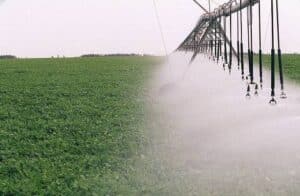Brazil imports as many pesticides as in 2019. Almost 335 thousand tons of insecticides, herbicides and fungicides landed in the country from January to December.
The volume is 16% greater than in 2018 and is a record for the historical series started in 1997, according to data from the Ministry of Economy.

Import Growth
Data from Ibama (Brazilian Institute for the Environment and Renewable Natural Resources) show that in 2018. Although more recent data is available, 549 thousand tons of products were sold in the national territory – an increase of 1.8% compared to the previous year.
Larissa Mies Bombardi, professora do Departamento de Geografia da USP (Universidade de São Paulo) e autora Conexões com a União Europeia. Embora aponta como motivo para a demanda a expansão da área de cultivo no país.
According to her, soybeans increased the cultivated area by practically 100% in the last ten years, and sugarcane, around 50%. “There is a very significant increase in the cultivation area in a short period of time”, says Bombardi.
In the case of soy and corn, virtually all production is based on herbicide-resistant transgenic seeds.
In the case of 2019, the researcher points out as a possible reason for the double-digit increase. Thus being the record release of pesticides made by the government of Jair Bolsonaro.
Last year, 474 new pesticides were registered in Brazil, the highest number in the last 14 years. As of 2017, this annual release was already over 400 products. Today, the country has 2,247 registered pesticides.
Volume of Imports
The Ministry of Agriculture claims that it is not possible to establish a relationship between the release and the volume of imports. For once the new products can be manufactured by national or foreign companies.
Today, importation represents more than half of the volume of pesticides sold in the country and, among the leading foreign companies in Brazil, are the Swiss Syngenta, in addition to the Germans Bayer and Basf.
Syngenta mentions the country as a highlight in pesticide sales in 2019 in its global report on the year.
“The strong growth in sales volume in Brazil more than offset the impact of adverse weather that delayed the harvest and reduced the area under cultivation in the United States,” says the company in the document.
According to the Swiss company, sales of Elatus fungicide in Brazil more than doubled last year. However, there was also strong growth for Cruiser and Fortenza insecticides.
Bayer mentions in its third quarter report – the most recent available – an advance of 72% in sales in Latin America and says that the country was responsible for the advance.
“The growth in this region came from the increase in the volume of herbicides, fungicides and insecticides in Brazil”, says the company, finally mentioning greater gains after the registration of the fungicide Xpro.
Some pesticides sold by companies are banned in their own countries of origin, according to a survey by researcher Bombardi because (as is the case with products such as Fipronil, Chlorfenapyr and Thiodicarb).
Pesticides
Even so, the Minister of Agriculture, Tereza Cristina, denies that Brazil imports are lenient in the international comparison. "No way. So if you approve more products, theoretically you are approving products that are less toxic than those that are already on the market”, he said.
Although for Anvisa (National Health Surveillance Agency), the new ingredients are generally products with a better toxicological profile and control pests with a smaller number of applications.
Sindiveg (National Union of Plant Protection Products Industry) says that, due to climate challenges and pests, the registration of new products in 2019 was positive, as the law that deals with agricultural pesticides in Brazil was created in 1989 and thus being would not have accompanied the various developments in agriculture.
In Congress, a project is being processed that establishes the National Policy for the Reduction of Pesticides and is facing resistance from ruralists, whose lobby is one of the strongest in the Chamber and Senate.


